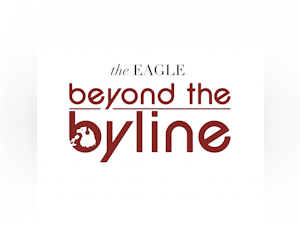From: District Wire
How D.C. aims to help school children who have incarcerated parents
Hearing on kids with incarcerated parents
@cmdgrosso @LaRubyMay @DMEforDC Watch: https://t.co/878EbXwckC pic.twitter.com/82b8zZKKMg
— Council of DC (@councilofdc)
November 12, 2015
The effects of a prison sentence go far beyond the convicted.
The one in 28 children with an incarcerated parent in the U.S. are at a greater risk of being suspended, expelled or going to prison themselves, according to a Rutgers University study.
At a Nov. 12 D.C. Council education committee hearing on the issue, Chair David Grosso stressed this point, saying, “We know that children who are expelled or suspended from school are more likely to end up in the criminal justice system. The school-to-prison pipeline begins.”
The meeting was called to discuss two bills meant to provide affected District students with some relief. The Assessment on Children of Incarcerated Parents Act of 2015 is designed to provide the city with even more data on the issue. The legislation would require the mayor’s office to conduct “assessments” to determine the effects of parental incarceration on students’ academics. Based on this research, the mayor would recommend new policies.
“Often in the District of Columbia we talk about the needs of returning citizens,” At large Councilmember Grosso (I) said. “But we have not yet explored the impact of incarceration on our children, nor taken specific steps to meet the needs of those children.”
According to Grosso, the new legislation is an “attempt to change that.”
Councilmembers also heard testimony on another bill, the Youth Suicide Prevention and School Climate Survey Act of 2015, which would require suicide prevention training for all “school-based personnel.” The bill would also require the State Superintendent of Education to conduct research on students’ academic performance and physical safety.
For many children, losing a parent means losing a base of support, both financially and emotionally.
“Research has shown that if our students do not feel physical and emotional safety and trust, we won’t see the academic achievement and progress that we desire,” Grosso said, making it clear that students would not be coddled under the new programs. “It’s time for us to stop making a false choice between rigor and support.”
Ward 8 Councilmember LaRuby May spoke in support of the bill, and stressed incarceration’s disproportionate effects.
Thanks DC Prisoners' Rights Project and Sons of Life for support of Children of Incarcerated Children
@Ward8Rising pic.twitter.com/VLXOe1r31Y
— LaRuby May (@LaRubyMay)
November 12, 2015
“It’s very important we know that the majority of children [affected] are African-American children,” she said. Nationally, one in nine black children have an incarcerated parent, the Rutgers study found.
It is an issue which many say has gone ignored too long.
Michael Augustus Lee lamented what he considers a “national tragedy, a national disgrace, and a state of emergency.”
“It has become acceptable,” Lee said at the hearing, with an expression of frustration. “We’re too close to the White House…a couple blocks away we’ve got the Department of Justice, the Department of Education…This is a contradiction.”
Michelle Hare-Diggs testified about her experience raising two sons as their father was incarcerated. She said not all families are comfortable reaching out to to school officials, and said schools need to take proactive action when they encounter single-parent families.
“Ask questions,” Hare-Diggs said. “Dig a little deeper.”
Yasmine Arrington, a daughter of an incarcerated parent, joined Hare-Diggs in calling for change, saying “we cannot do this alone.”
Deborah Golden, director of the DC Prisoners’ Rights Project, pledged the support of her organization and stressed the urgent need for reform. “We have to acknowledge that this is a huge issue for D.C.,” she said.
Deputy Mayor for Education Jennifer Niles urged D.C. councilmembers to join other U.S. cities across which have addressed growing parental incarceration .
“To be sure, this is not a school-only issue, rather this is a District-wide community issue, in which all members must be involved,” she said.
districtwire@theeagleonline.com
Follow @districtwire


